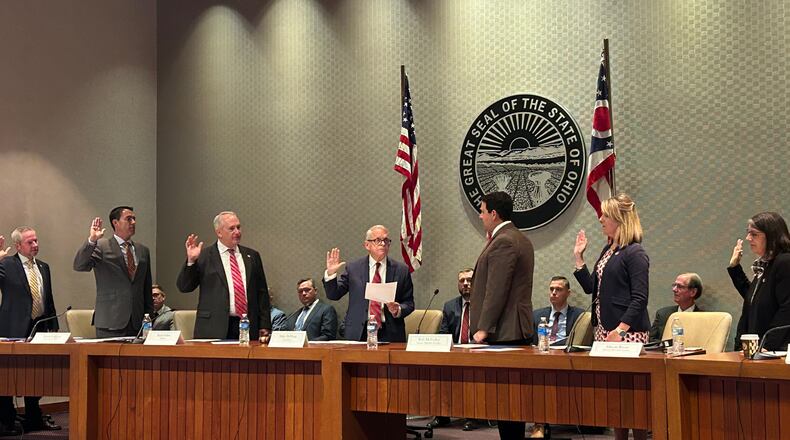Behind the proposal is Citizens Not Politicians, which is aiming to get its proposal on the November 2024 ballot. The campaign is led by Republican former Ohio Supreme Court Chief Justice Maureen O’Connor, whose court struck down state-approved legislative districts on five different occasions in 2021 and 2022 for not complying with the Ohio Constitution.
Before Monday, the campaign’s submission had twice been denied by Ohio Attorney General Dave Yost, whose job is to determine whether the initiative’s submitted summary of the amendment matches the actual impact of what the amendment would legally do.
“We are pleased to clear this step in the process and look forward to the next phase,” said Citizens Not Politicians spokesperson Chris Davey. “...Ohioans are very receptive to our nonpartisan plan to replace politicians with citizens on a reformed redistricting commission in a transparent redistricting process and to require that all congressional and legislative maps be fair to voters.”
The proposed amendment now moves to the Ohio Ballot Board, which is tasked with determining whether the initiative is actionable using just one constitutional amendment. If the board were to determine that the initiative actually contains several constitutional amendments, Citizens Not Politicians would need to rewrite and resubmit its amendments to the Attorney General.
Once the initiative clears the Ohio Ballot Board, the campaign will need to collect at least 413,487 valid signatures and ensure that at least 44 of the state’s 88 counties are adequately represented in those signatures.
“If sufficient signatures are verified by the Ohio Secretary of State at least 65 days before the election, the full text of the proposed amendment shall be placed on the ballot in the next regular or general election that occurs subsequent to 125 days after the filing of such petition,” wrote Yost’s office in a Monday news release.
About the Author

